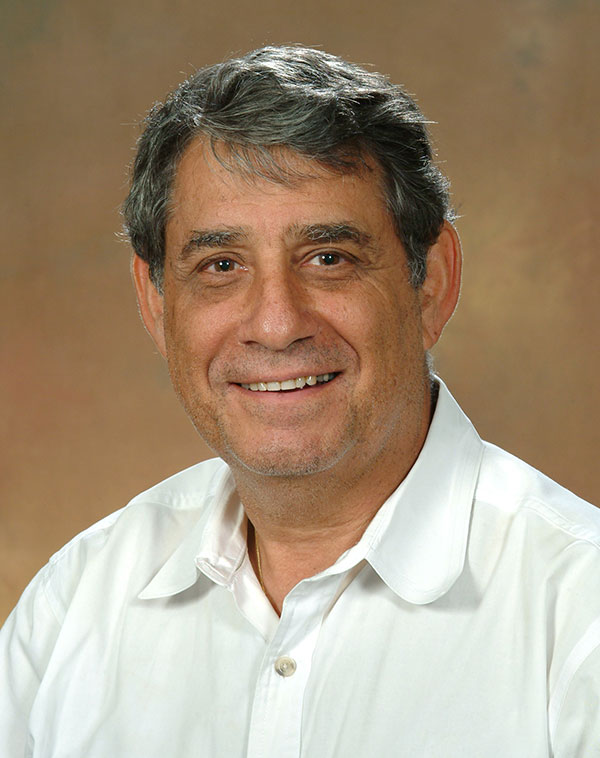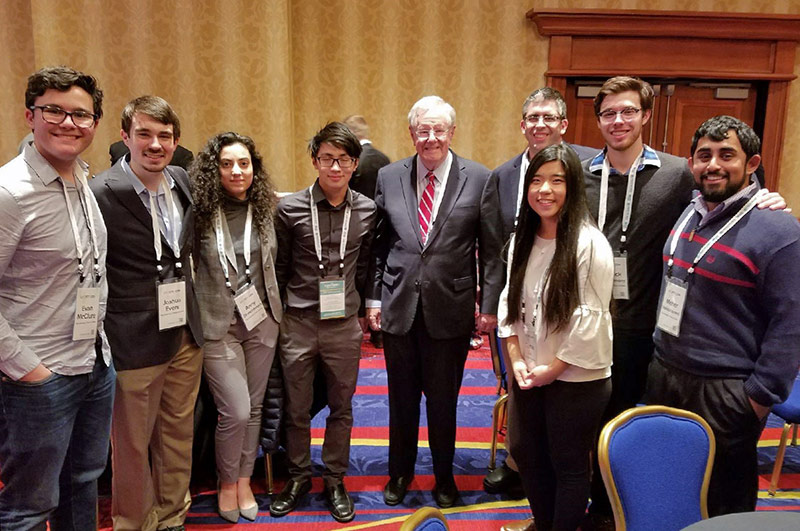The Naveen Jindal School of Management at UT Dallas has launched a new program to help students gain a better understanding of the American free enterprise system.

Dr. Peter Lewin
The Colloquium for the Advancement of Free-Enterprise Education (CAFÉ) teaches Jindal School students the foundations of economic freedom and the function of ownership rights — and how this affects business practices.
“I’ve been at UTD for 25 years, and this is something I’ve wanted to do for at least 20,” said Dr. Peter Lewin, director of the program and a professor of finance and managerial economics. “I’m passionate about this program because I want to educate students who are not only trained in their specific academic areas, but who are also educated in economic principles underlying the American free enterprise system so that they can go on to become well-informed business leaders.”
Operating within the Center for the Analysis of Property Rights and Innovation (CAPRI), CAFÉ will invite undergraduate and graduate students to apply for a fellowship each fall. The 2018 cohort of CAFÉ fellows includes 11 undergraduate students and seven master’s students.
The program is recruiting up to two graduate student research fellows and up to two senior research fellows who will serve on the faculty. Lewin and his team are also working on filling a postdoctoral position.
Dr. Stan Liebowitz, director of CAPRI and Ashbel Smith Professor of Managerial Economics, is co-director of CAFÉ and a senior research fellow in the program.
The program is jointly funded by a grant of up to $840,000 from a local donor — a UT Dallas graduate who wishes to remain anonymous — and the Charles Koch Foundation, a charitable organization that supports scholarship in pressing issues such as criminal justice and policing reform, toleration and free speech, foreign policy, economic freedom, technology and innovation and K-12 education.

CAFÉ program participants attended the Students for Liberty conference in Washington, D.C., where they met Steve Forbes, chairman and editor-in-chief of Forbes Media. From left: Evan McClure, Joshua Evers, Anny Shechtman, Weiwei Qin, Forbes, Kevin Cangelosi, Cynthia Liu, Patrick Fitzsimmons and Meher Vallabhaneni.
Undergraduate CAFÉ fellows can receive up to $5,000, and graduate fellows can receive up to $10,000. As part of the fellowship, students are eligible to participate in UT Dallas activities such as student clubs and reading groups. Fellows can also participate in off-campus activities, such as attending national or state conferences, that are related to the mission of the program.
“We will invite guest speakers who will present something very topical,” Lewin said. “It will be open to our fellows, as well as the University and the public."
In addition, fellows will complete two courses (one per semester) over the calendar year. These two courses will examine the comparative performance of economies with different institutional structures.
Graduate fellows in the program can pursue research, help undergraduates involved in the program and assist faculty with research or articles.
“The target audience for research coming out of CAFÉ consists of connected, aware, curious businesspeople and academics and the think-tank environment,” Lewin said. “The main focus of our program is educational, but we also have a robust research component.”